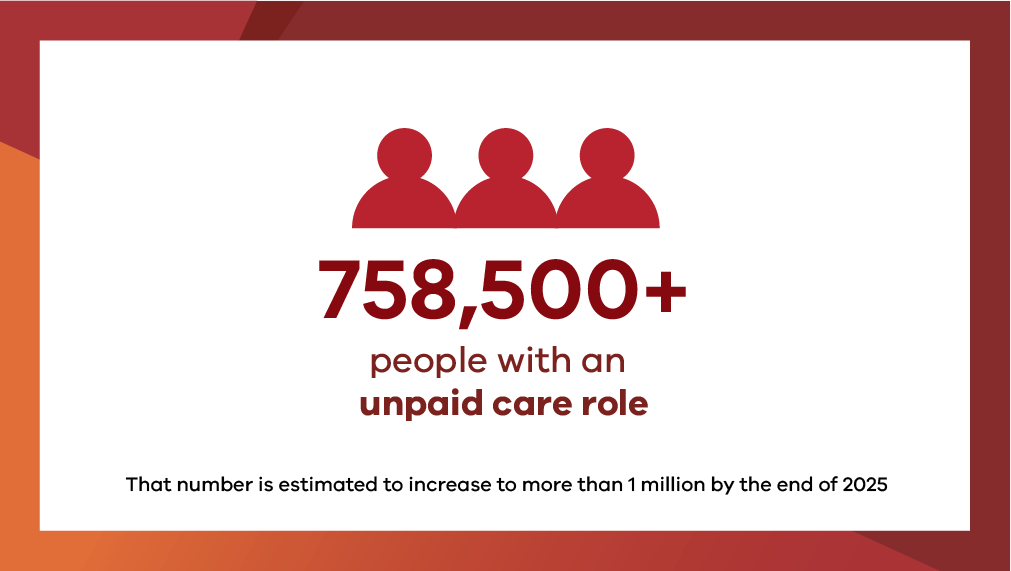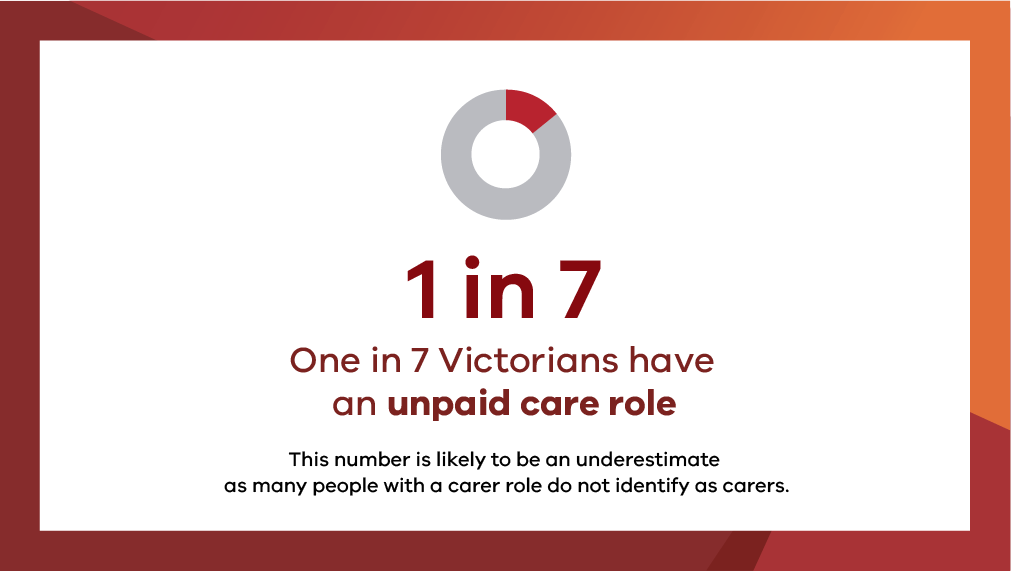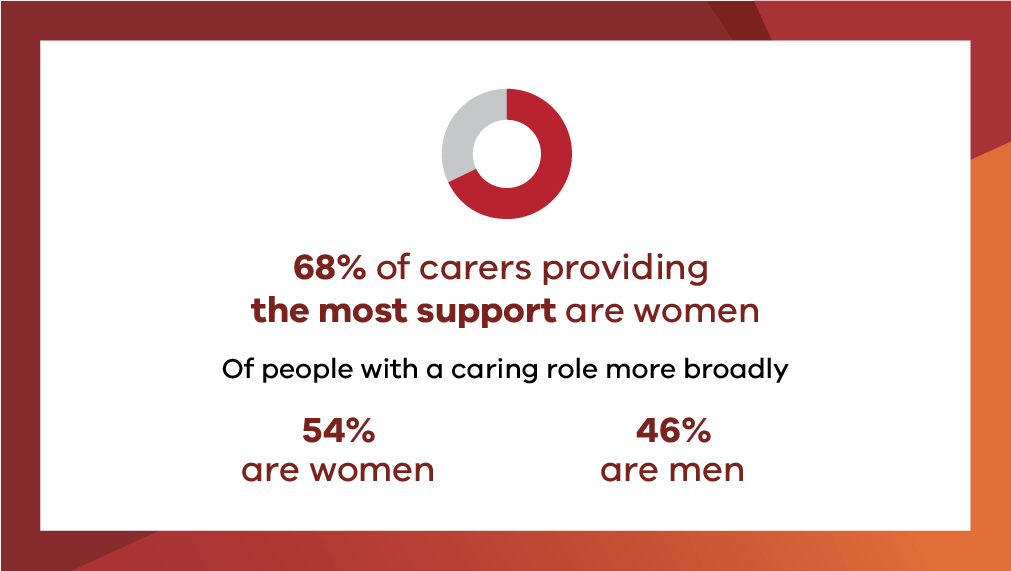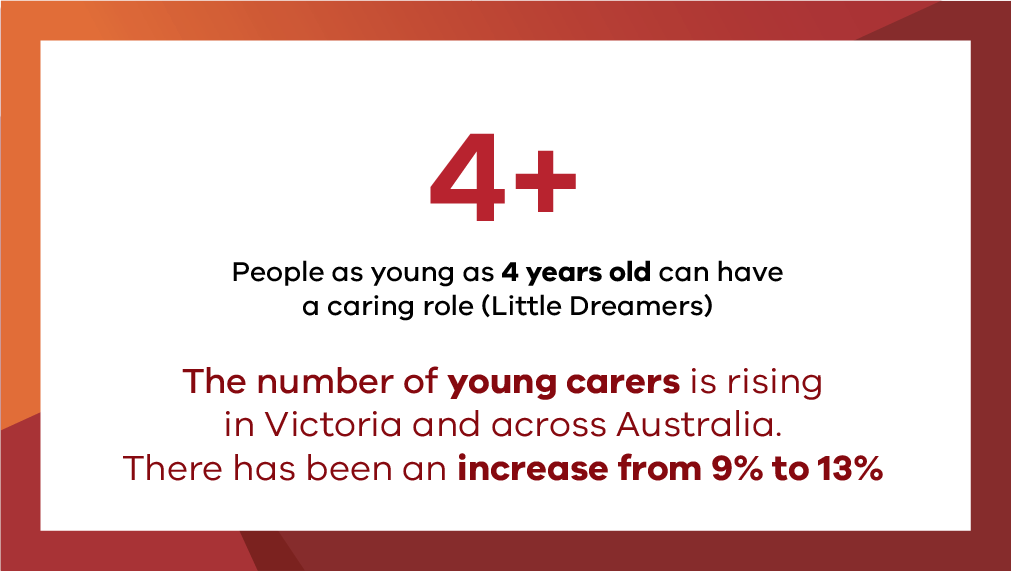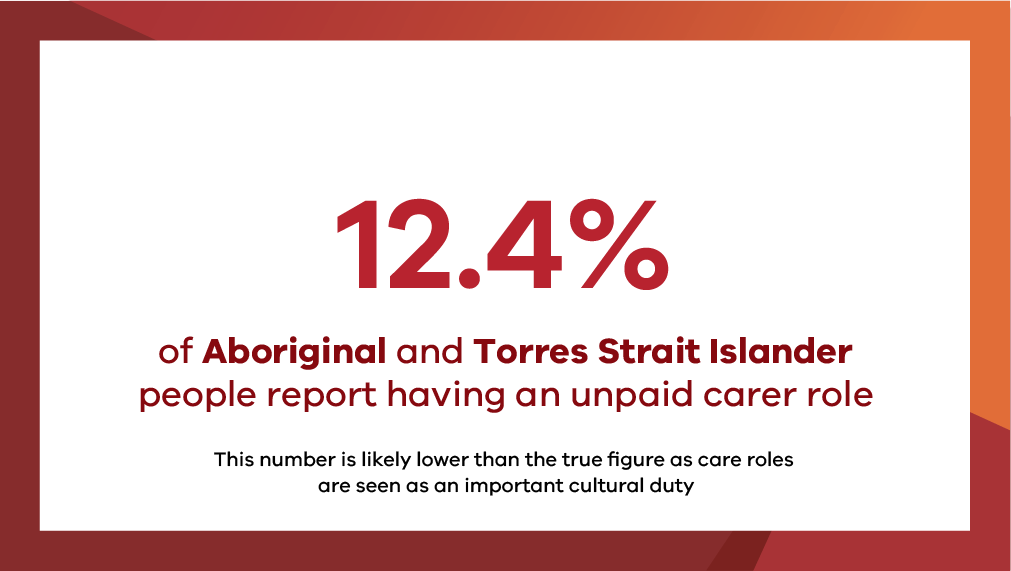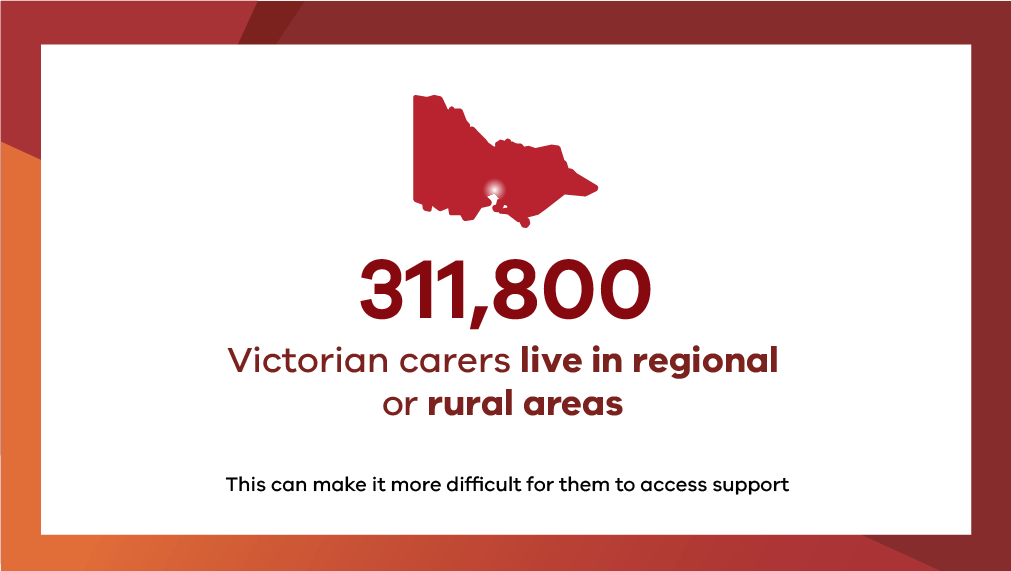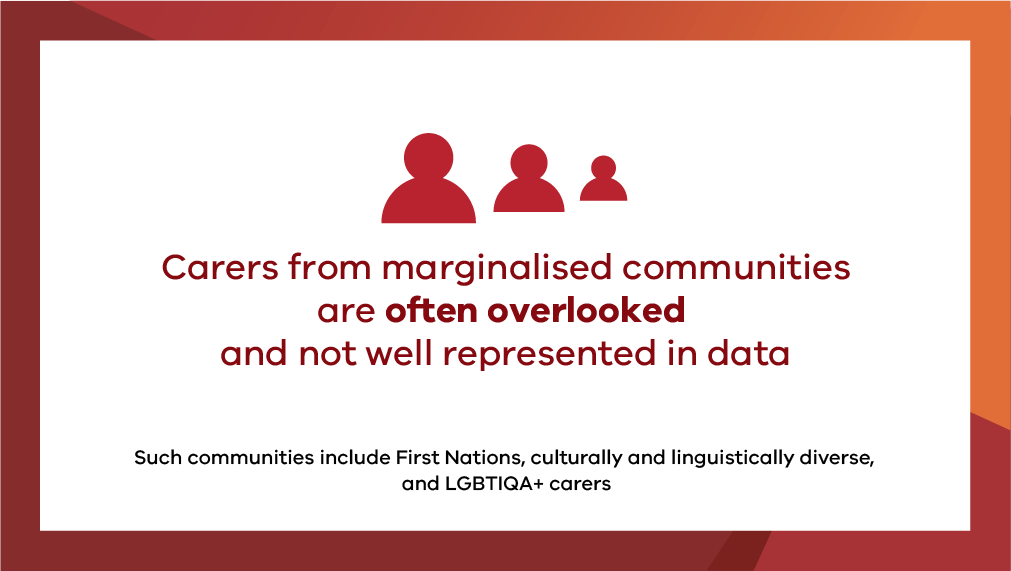About the strategy
The Victorian Carer Strategy 2025-2035 is about carers, their lives, and the rewards and challenges of providing care to someone who needs it.
The strategy outlines how the Victorian Government will recognise and support people with a care role.
Our vision is that Victorians with a care role are valued and have better health and wellbeing. Carers contribute so much to Victoria’s economy, society and communities. They may provide care and support to someone with disability or neurodivergence, mental illness, drug or alcohol dependency, terminal or chronic illness, or age-related care needs.
This strategy aims to reflect the lived and living experience of all people with an unpaid care role in Victoria. It is a call to action to government, services, systems, and communities to better recognise, value and support carers whoever they are, and wherever they live.
We will work with care support providers, services, communities, carers and their families to work towards this vision.

How we developed the strategy
The Victorian Carer Strategy 2025-2035 builds on Victoria’s first dedicated carer strategy: Recognising and supporting Victoria’s carers: Victorian carer strategy 2018-23.
To help us update the strategy, we heard from:
- carers from different identities, ages, backgrounds and circumstances, and their families
- services who help carers and the people they care for
- carer advocacy groups
- different parts of government, including education, health, and employment.


What we want to achieve
Victorians with a care role are valued and have better health and wellbeing.
What we stand for
- Welcoming and inclusive
- Always improving
- Listening to carers
- Sharing responsibility
- Working together.
About people with a care role in Victoria
What we will focus on
Awareness, recognition and respect
- People with a care role are recognised, respected and valued.
- Communities and services understand the importance and diversity of care roles and relationships.
- Carers have a say in how services work – for them and the people they care for.
Quality services in the right place, at the right time
- People with a care role and their families are supported as early as possible.
- Services work together to provide flexible, connected support.
- Services are easy to find and access for carers, no matter where they live.
Participation, connection and opportunity
- People with a care role have greater financial security.
- Workplaces, study and school environments are carer-friendly.
- Carers have opportunities for social, cultural and community connection.
Recognise and support First Nations care relationships
- First Nations communities have what they need to provide self-determined support to people with a care role.
- Services are culturally safe for First Nations carers and families.
- Barriers to accessing support for First Nations carers are addressed.

